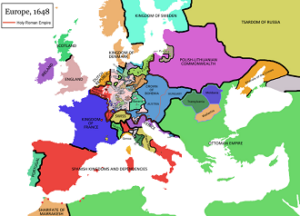
Arquivo para November 5th, 2021
Peace and related concepts
Peace is desired, but rarely cultivated, whenever a certain worldview or a worldview in the deepest philosophical sense is to prevail, in fact a conflict is brewing where divergent points cannot find a common horizon.
or a worldview in the deepest philosophical sense is to prevail, in fact a conflict is brewing where divergent points cannot find a common horizon.
The Roman eternal pax was the submission of territories to the Roman Empire, the Westphalian peace (1648) was a political agreement so that the conflicting Christian worldviews (Roman and Lutheran) did not provoke wars between the monarchic kingdoms at the time, but it was the treaty of the Pyrenees (1659) that decreed peace between France and Spain, the final stage of the conflict and for this reason it is also part of the peace of Westphalia.
This treaty was an embryonic notion for the concept of eternal peace, coming from idealism, which was deepened in the Congress of Vienna (1815) and the Treaty of Versailles (1919).
The concept of Eternal Peace was developed by Immanuel Kant, as one of the ideals of the French Revolution, the state of world peace actually created the concept of a single “republic”, capable of representing the naturally peaceful aspirations of peoples and individuals, this concept in addition to being neocolonized (and thus incorporating concepts from the pax Romana), it is based on a Western cosmovision and does not encompass the concepts of the Arab and Eastern world, in addition to ignoring the concepts of the original peoples.
Peace in a broader worldview implies accepting the different visions of the relationship with nature and with other peoples, says Caio Fernando de Abreu in Small epiphanies: “we demand the eternal of the perishable, madmen”, because only in a model of a broad worldview that encompasses peace we could walk towards a new human and natural reality.
In a correspondence exchanged between Freud and Einstein, entitled “Why War?” in 1933 and which was banned by the Third Reich, in Freud’s text the question of interiority, because many who speak of peace want and provoke war, insist on their cosmovisions and they want to submit the others, so they do not pose the question of anteriority, which consists in understanding, considering war as an almost universal and trans-historical concept, but which originates in human interiority: ambition and power.
The Freudian reading, also Lacan will do this later, is to inscribe peace in an inverse way from the Kantian perspective, approaching the question of the infinite, and it also escapes any form of moral consideration, the psychoanalytic reflection is the possibility of power continuing to be confront, to develop a new approach to the “political” thing.
There is a question of the common good, also but not only, a second reading of the letters of Freud and Einstein, it is added “because the choice of war”, as well as the previous existence of war itself, phenomenon, process or fact that it is not possible to eradicate or replace, it can become a search looking at human ambition less or more clearly announced, discovering the nature, essence and reason for being, it is therefore an ontological question of “choice” of war and not of peace, often difficult to find, but which should be a primary desire.
FREUD, S. (1995) “Pourquoi la guerre? Lettre d’Einstein à Freud”, in OCP, v.XIX. Paris: PUF.

